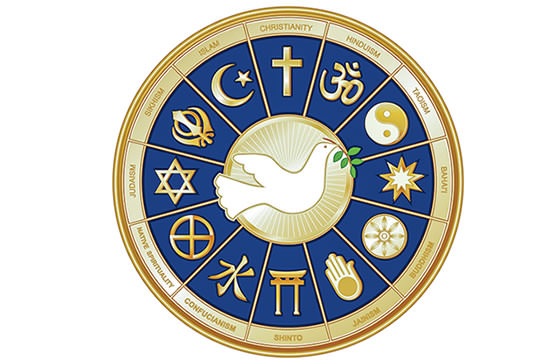 What we all have in common
What we all have in common
Nostra Aetate is the Vatican II Declaration on the Church’s Relationship to Non-Christian Religions (1965) was one of the most influential and celebrated documents issued by the Council.
It begins:
In our time, when, day by day, humankind is being drawn closer together, and the ties between different peoples are becoming stronger, the church examines more closely its relationship to non-Christian religions. In its task of promoting unity and love among all people, indeed among nations, it considers above all in this declaration what we all have in common and what draws us to fellowship.
Pope Francis spoke of the importance of acknowledging other religious expressions (here the Jewish faith) when he addressed the Chief Rabbis of Israel in May 2014:
Mutual understanding of our spiritual heritage, appreciation for what we have in common and respect in matters on which we disagree: all these can help to guide us to a closer relationship, an intention which we put in God’s hands. Together, we can make a great contribution to the cause of peace; together, we can bear witness, in this rapidly changing world, to the perennial importance of the divine plan of creation; together, we can firmly oppose every form of anti-Semitism and all other forms of discrimination. May the Lord help us to walk with confidence and strength in his ways. Shalom!

Shaun McAfee, a US Catholic social media director, summarises Nostra Aetate most succinctly (http://www.shaunmcafee.com):
1. In the church’s relationship with non-Christian religions, it considers what is in common and what brings fellowship. Humanity is united on the deepest of questions, from our own existence to that of other things that cannot be fully comprehended.
2. In many ages, humankind has experienced the perception that there is a universal power. Refining language and concepts has not provided an answer to many of these questions or ideas. Religions like Hinduism and Buddhism closely match our own restless pursuit of truth and freedom. What is true and holy in these religions, the Catholic Church does not reject, for there are rays of light in these religions even if incomplete.
3. Also regarded with esteem is the Muslim religion, who believe in one God. They regard Jesus as a Prophet, love his Mother dearly, and promote lives of piety. Though we have had past conflict with them, we look to a hopeful future.
4. The church recognises its roots in the people who first looked for the Messiah, the sons of Abraham, the Jews, who share an important role in Christ. With enthusiasm, the church looks forward to the day when all people will acknowledge the Lord in one voice. Some Jews of Christ’s day contributed to his death, but the blame cannot be put on the totality of the Jewish people then or today. Therefore, the church opposes hatred and persecution of all, but especially the Jewish people.
5. Based on this, the church reproves notions that discriminate against anyone for religious, race, colour or condition of life. The church urges all of us to seek dialogue in love with other people of our world.
In an earlier speech (July 2013), Pope Francis stressed the importance of openness and dialogue:
When leaders in various fields ask me for advice, my response is always the same: dialogue, dialogue, dialogue. It is the only way for individuals, families and societies to grow, the only way for the life of peoples to progress, along with the culture of encounter, a culture in which all have something good to give and all can receive something good in return.
Others always have something to give us, if we know how to approach them in a spirit of openness and without prejudice. I call this attitude—of openness and availability without prejudice—social humility, and it is this that favours dialogue. Only in this way can understanding grow between cultures and religions, mutual esteem without needless preconceptions, respectful of the rights of everyone.
Today, either we stand together with the culture of dialogue and encounter, or we all lose, we all lose; from here we can take the right road that makes the journey fruitful and secure